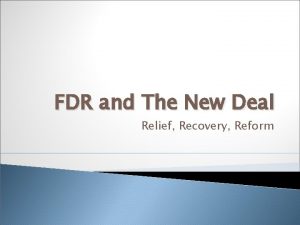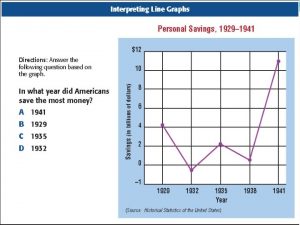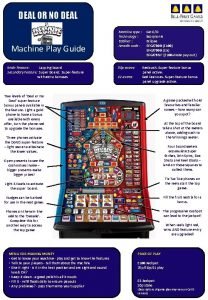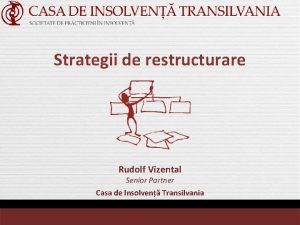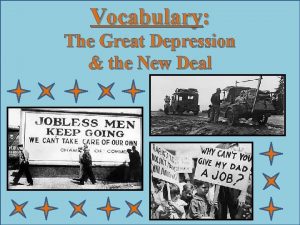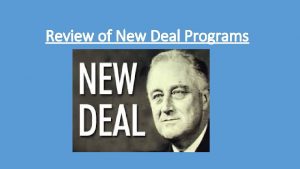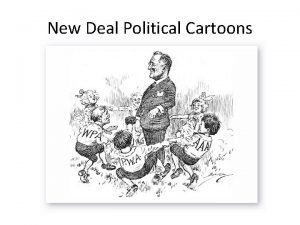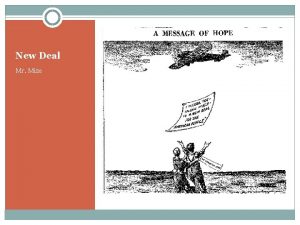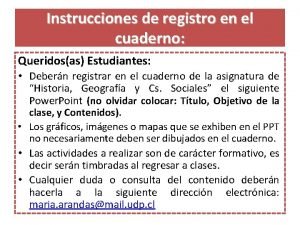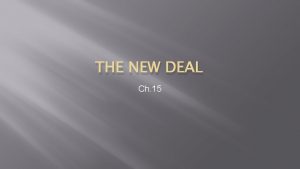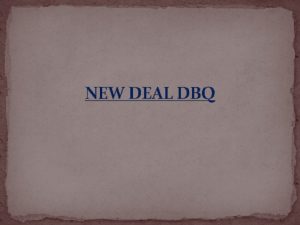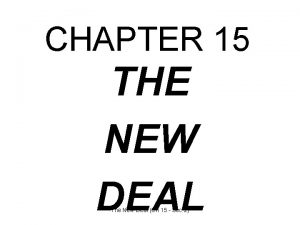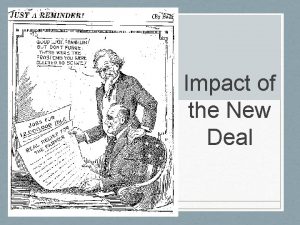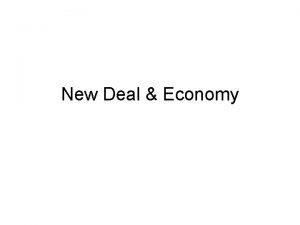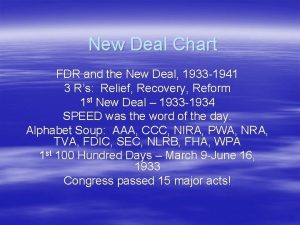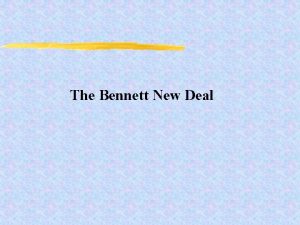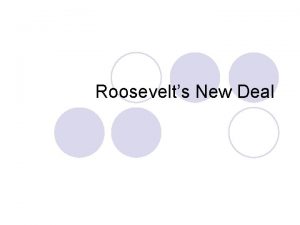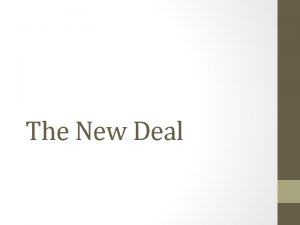Sec 4 Effects of the New Deal As











- Slides: 11


Sec. 4 Effects of the New Deal As the Great Depression continued and the administration became the target of increasing criticism, Roosevelt launched the Second New Deal

Key Terms: pension, Second New Deal, Social Security Act, unemployment insurance Essential Questions: Why did people criticize the New Deal? How did the Second New Deal new economic and social roles for government?

New Deal Opponents In the early days, FDR counted on big business to support his efforts to revive the economy. But in general the business world opposed the New Deal. Business leaders accused Roosevelt of spending too much government money and of trying to destroy free enterprise. At the same time Roosevelt also had liberal critics: Charles Coughlin Francis Townsend Huey Long

Second New Deal By the mid 1930 s the economy had improved and FDR took bolder steps The Revenue Act of 1935 was passed- How did this bring in more government funds? Roosevelt launched a new set of programs and reforms called The Second New Deal in 1935: How many still unemployed? Works Progress Administration (April 1935) Social Security Act – whom did it help?


The Labor Movement Labor unions grew stronger during the Great Depression. 1 st sit-down strike occurred in Flint, Michigan at the General Motors plant Most influential labor leader was John L. Lewis who formed the Congress of Industrial Organizations in 1935 National Labor Relations Act (Wagner Act) 1935 – what did it do? Fair Labor Standards Act 1938 – What did it do?

The Supreme Court Those who opposed the New Deal challenged many of its laws in the courts claiming they were unconstitutional. The Supreme Court ruled that the National Industrial Recovery Act was unconstitutional in May 1935 and in January 1936, they ruled the Agricultural Adjustment Act was unconstitutional. Where did Roosevelt’s support come from for his reelection campaign? After Roosevelt won re-election in 1936 he took action to prevent the Supreme Court from undoing the New Deal. He asked Congress to increase the number of justices from 9 to 15.


Roosevelt Recession By the summer of 1937 the national income had returned to nearly its 1929 level and believing the depression was over Roosevelt tried to reduce the government’s debt by cutting spending on relief and job programs. The economy faltered immediately and the new economic downturn become known as the Roosevelt Recession – and he tried to reverse it with a flood of government spending on public works.

End of the New Deal The court-packing fight and the Roosevelt Recession had cost FDR support in Congress. The economy had not fully recovered, in spite of New Deal programs. As the 1930 s drew to a close world events caused Americans to turn their attention from domestic to foreign affairs.
